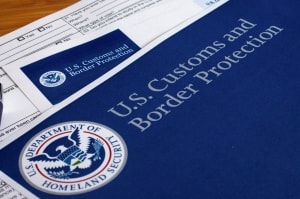The U.S. Customs and Border Protection (CBP) has established a new set date for use of the Automated Commercial Environment for all entry summary filings and electronic entries from November 1, 2015 to February 28, 2016. The Automated Commercial Environment (ACE) will be used for all goods transported into and out of the United States. This change has been made in response from stakeholder’s preparedness for the Automated Commercial Environment (ACE) transitioning. The following schedule is as follows.

November 1, 2015
This will be the transitioning phase of ACE for agencies and participating governmental agencies allowing them
additional time to test, provide feedback, and fully transition to the new system to start their implementation of the Automated Commercial System. The ACE transitioning is encouraged and permitted for electronic entry and corresponding entry summary fillings for the following types 01, 03, 11, 52, and 52, with or without PGA data.
- ACS will no longer accept CATAIR HN (border cargo release), CATAIR HI (cargo release), or CATAIR EI (entry summary) transactions.
- Filers will only be able to present AE (entry summary) and ACE CATAIR SE (cargo release) transactions.
- Filers who do not attempt filing entries and entry summaries in ACE on November 1, 2015 could be faced with delays in cargo processing, and a potential impact of a release of goods at the border.
February 28, 2016

ACE must be used and the Automated Commercial System will become unavailable at this time for the filing of all electronic entries and associated entry summaries. In addition, electronic Food and Drug Administration, Animal and Plant Health Inspection Service (Lacey Act), and the National Highway Traffic Safety Administration data must be filed in ACE.
July, 2016 Date to Be Determined
The announcement for the final rule by the CBP estimated for the end of July, 2016 will mandate the use of data filing in ACE for the following agencies:
- Agricultural Marketing Service
- Alcohol and Tobacco Tax and Trade Bureau
- APHIS (core)
- Centers for Disease Control and Prevention
- Defense Contract Management Agency
- Directorate of Defense Trade Controls
- Drug Enforcement Agency Enforcement and Compliance
- Environmental Protection Agency
- Fish and Wildlife Service- dependent on FWS having its regulatory revisions set before the CBP final rule is published)
- Food Safety and Inspection Service
- National Marine Fisheries Service
Hybrid submissions will no longer be permitted.
October 1, 2016
CBP has documented that just “3.9 percent of entries and 47.6 percent of entry summaries are presently being filed in ACE.” This will have an effect on the release of goods at the borders the CBP ports because they are not prepared to handle the increased amount of paper transactions. Filers by or on October 1, 2016 will need to make certain that additional cargo data that is electronically being sent such as NAFTA duty deferral and drawback, reconciliation, and protest, are discharged to ACE.

The purpose of ACE’s is to further strengthen security of U.S. borders and simplify the method of inspection on inbound and outbound goods, making in-depth examination easier by creating the entire compliance procedure electronic and immediate. ACE will not only involve the shifting of Customs handling online but it will virtually eliminate manual processes, while requiring a mandatory securing of comprehensive information that would not have formerly entered the domain of a customs broker. Ace will not only assist the brokers in obtaining details which are essential to the auditing process in verifying that the systems are in place and to notify when changes occur or problems happen at any stage in the ACE process.
AFC International, LLC can help prevent costly mistakes with the transition to ACE. Contact us at AFC International LLC.com with your questions.
